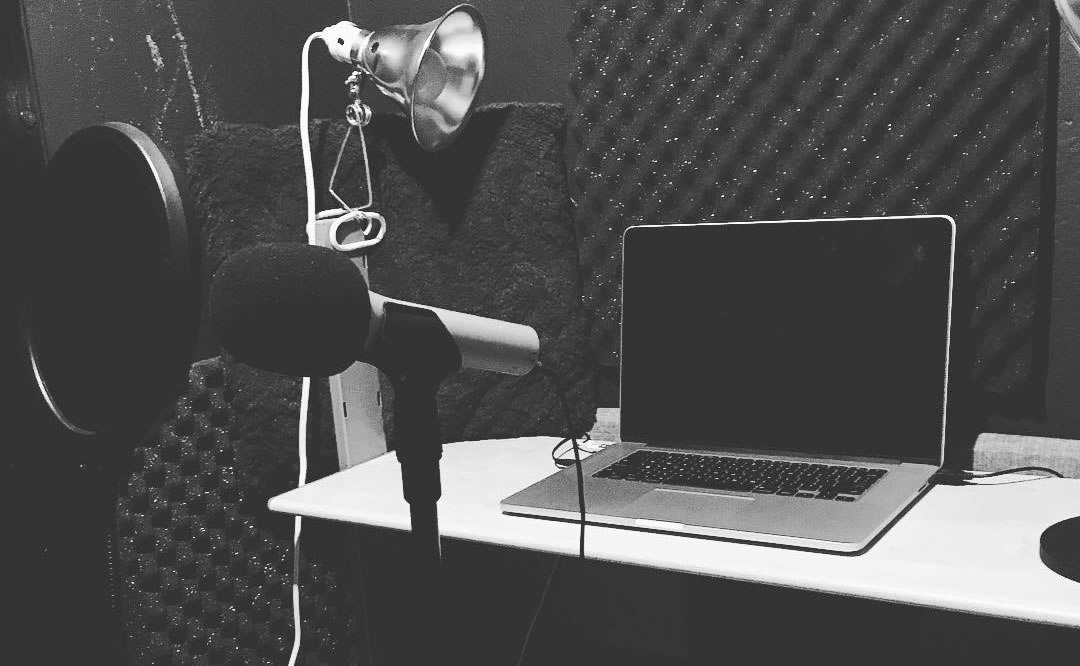How to make a podcast (and submit it to Spotify and Apple Podcasts) in 2024
If you want to create a podcast in 2024, you need to choose the right topic, get the right equipment, get podcast hosting, and submit it to Apple Podcasts and Spotify the right way. Here's a quick guide with all the tactics I've been using for the last 12 years.
Update: I've just written a more updated "How to start a podcast" guide here.
First, choose your podcast topic.
The most important step for a new podcaster isn't buying the right gear, choosing the right platform, or even finding guests.
Before you do anything else, you need to pick a topic.
To do this, you're going to answer two fundamental questions:
Who is this podcast for?
What is it for?
My show (Build your SaaS) is for people starting a software business. It aims to share our journey and help other founders navigate the startup stage.
Next, research podcasts in that genre.
It's not enough to pick a topic. To stand out, you'll need to ask yourself:
What unique perspective can I bring to this subject? What hasn't been done before? How can I stand out?
A good tool for doing podcast research is Chartable.
You can browse the different podcast categories and see what types of shows rank highly.
When you see a show at the top of a category, see when it was last updated. If it's been months (or years!), you might be able to create a new show to fill that space.
For more about choosing your audience, check out:
Quit trying to attract a crowd (the takeaway here is asking: how can you help people?)
Don't make stuff for hippies (audio)
Start practicing: record yourself
Don't run out and buy a bunch of recording gear yet!
Practice by recording something on your phone. You don’t need a fancy mic to start practicing.
You can record test episodes with whatever recording device you currently own. For most people, this means using your phone!
Just follow these steps:
Find the Voice Memos app on your iPhone
Choose a topic you’d like to talk about
Write out an outline for a short 5-10 minute episode
Open up the Voice Memos app and record your episode!
Repeat over and over again: practice recording that same episode dozens of times
The idea is to start small.
It's easy to fall into the trap of buying equipment. But, having all that gear will delude you into feeling like you've already arrived. Podcasting is about creating compelling audio! If you've never recorded your voice before, you're going to need a lot of practice.
It's OK to feel dumb at the beginning!
Buy the podcasting gear starter kit.
Here is the podcast equipment I recommend for people starting:
Microphone: Samson Q2U is a dynamic USB microphone.
Pop filter: Find one that will work with your mic. This one is a good start.
Headphones: Audio-Technica ATH-M50x
Editing software: Descript (PC or Mac) or Garage Band or Screenflow (for Mac), and Audacity (for PC)
That whole set-up could cost under $100 USD (especially if you skip headphones for now).
For more information, check out these podcast equipment bundles.
Podcast hosting
For podcast hosting, you'll need two things:
An RSS feed
A place to host your audio files
For my first podcast, I hosted everything myself on WordPress (and stored my audio files on Amazon S3). I thought it would save me money; I was wrong! My AWS hosting bills were $20-$30 per month. It turns out that bandwidth is expensive!
This is why Jon and I ended up building Transistor.fm: to make it affordable to have high-quality podcast hosting and analytics.
Transistor gives you everything you need to host your podcast for $19/month:
A website for your podcast
Fast MP3 hosting on our CDN
An Apple Podcasts-ready RSS feed
Landing pages for each episode (sample)
Detailed podcast analytics
We also have a podcast player that you can embed on your website:
If you're hosting somewhere other than Transistor (Anchor, Soundcloud) you can use this tool to build a free podcast website.
How to record and edit your podcast
I recently asked James McKinven to make a tutorial on his whole process for podcast recording, editing, and publishing:
For recording remote guests, Skype has a built-in call recording feature (as does Zoom).
Some great web-based recording tools automatically record both sides of the conversation:
Where do you get theme music? You can get free music here. For purchasing music, go to:
Themesong.studio – buy the complete rights to high-quality theme songs and intros
Musicbed – "find the perfect song for your project"
How to book podcast guests
When you're looking to book guests, send people genuine emails that show you know who they are, and what they're passionate about. Also, use SavvyCal so they can choose a time that works best for them.
I talk more about getting guests in my interview here.
How to launch and promote your podcast on Apple Podcasts
The two most important channels for your podcast will be Apple Podcasts and Spotify.
For step-by-step instructions, read these guides:
More resources
Check out these inspirational podcast studio setups.
Interested in private podcasting? You can use it to start a members-only podcast.
You can watch me create a podcast from start to finish in this YouTube video.
If you have more questions, you can reach me on Twitter.



